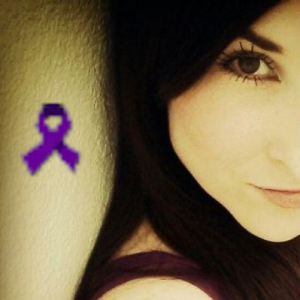Relaxation Became A Foreign Word
By Stephanie March
I was just a little kid when the term PTSD entered my life. Back then it was something said in hushed tones between my counselor and parents. They talked about me like I wasn’t in the room and about PTSD in terms I couldn’t understand and didn’t want to understand.
It was the eighties and not only was mental health something not spoken about but the traumas I endured which led to the development of my PTSD weren’t either. It was a double whammy of silence. Nobody bothered to explain to me what it was, how it was affecting me, or how it would continue to affect me.
My parents wanted to continue on with life like the sexual abuse didn’t happen and the PTSD didn’t exist. This was their way of dealing with most uncomfortable things. I understand now why they wouldn’t want to talk about it or perhaps didn’t know how. But I also understand how much worse this made things for me and how it negatively impacted my ability to heal.
The hope was that PTSD would improve as I got older and the symptoms would fade. The intense mood swings, hypervigilance, nightmares, and tendency towards depression and anxiety would somehow fade in time like normal childhood behavior. Only this wasn’t my behavior and it wasn’t my choice or something that could be outgrown like a pair of jeans.
In addition to the childhood traumas, I lived through several more as the years went on. I became involved in abusive relationships and survived a natural disaster in college. With each additional trauma another layer of PTSD was added on top of what I already lived with.
After I extricated myself from the clutches of domestic violence my PTSD skyrocketed to an all time high. I jumped at every loud noise, every door that was slammed, every car backfiring that could be mistaken for a gun. The fourth of July was a time for anxiety medication instead of celebration. Sometimes these noises would startle me so badly I would end up in tears or having a full blown panic attack.
Relaxation became a foreign word. Muscles along my spine were constantly in knots from tension and this created impressive amounts of pain. I had tension migraines more days than not. My stomach was often upset and sleeping became erratic as the nightmares ramped up.
I was tired, moody, anxious, and depressed. I wasn’t sure if it would ever get better and often heard from therapists that my PTSD was more severe than anyone they’d ever worked with. This gave me little hope that there could be improvement. I thought this would be my life and I wasn’t so sure if I wanted to continue it.
Slowly, I got up off of the floor where I often found myself sobbing. I knew that if I didn’t act soon my life could quite possibly come to an end. And I wasn’t about to let my story end that way.
I returned to therapy and focused on self-care. I made myself and my mental health a priority for the first time in my life. I did yoga. I ranted and cried with friends. I wrote and then wrote some more. I listened to hours of music. I read books that inspired me. I let time pass and wounds become less tender.
Recovery took a couple of years and it wasn’t always a pretty process. It’s not complete and it might never be and I’m ok with that. The progress I’ve made is tremendous and, at the risk of sounding boastful, I’m incredibly proud of my accomplishments. Incredibly proud.
Recently I wrote an article about the importance of recognizing PTSD in trauma survivors. There are awareness campaigns everywhere for veterans, as there should be, but often we tend to be forgotten. People ask us triggering questions and don’t understand the impact a simple comment can have on our day. We survived a different kind of war but it was a war nonetheless.
I believe strongly in eradicating the silence and stigma surrounding mental illness and all forms of trauma. We can’t get better, save lives, or create change in an environment of shame. I am many things, the least of which being a diagnosis. I am a daughter, granddaughter, and friend. I am a writer, college graduate, and lover of kindness. I am a survivor.
Stephanie March is a writer that believes sharing her stories of survival and struggle will help someone somewhere. She writes about domestic violence, child abuse, and mental health.
Stephanie can be found on her blog and on Twitter.
If you enjoyed this post, please take a few moments to leave a comment or to share with your friends using the little share buttons below.









Good for you for making your mental health your priority. It’s great that you were able to find the support you needed when your family didn’t, or couldn’t. I hope you’ve been able to forgive them for their ignorance.
Peace to you.